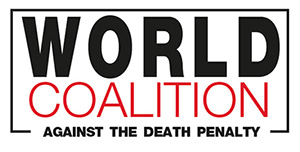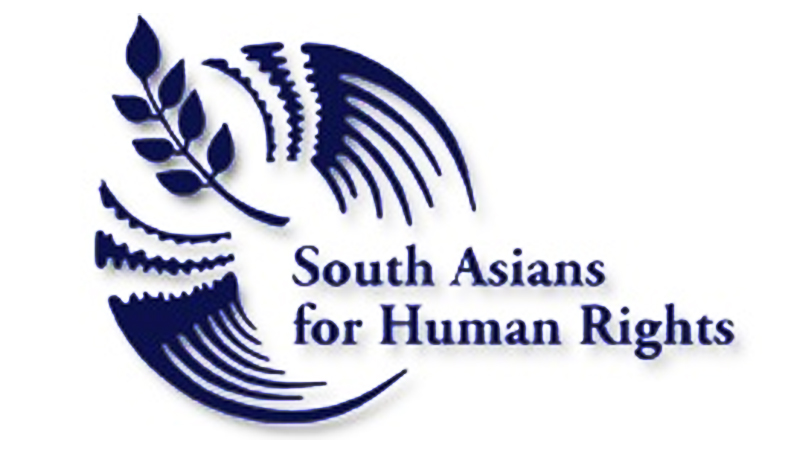Ecuador: Increase of the criminalisation of social protest in the context of extraction plans
Paris, Quito, 10 December 2015. FIDH and its member organisations in Ecuador, CEDHU and INREDH present and publish today a report (in spanish) analysing the phenomenon of criminalisation of social protest in Ecuador and urge the State to recognise the importance of freedom of speech and the legitimacy of peaceful denunciation, opposition and monitoring of extraction projects or land related projects. The report entitled (titre) also examines violations of the American Convention on Human Rights (CADH) by the State of Ecuador during the judicial proceedings against several community leaders and human rights defenders in Ecuador.
This report is presented today on International Human Rights Day, in the context of major demonstrations to protest the approval of constitutional amendments including one allowing indefinite presidential re-election.
The criminalisation of social protests in Latin America is growing ever stronger. In Ecuador this practice is used to hinder the actions of social leaders, to intimidate and stigmatise those who protest against industrial projects or to defend their lands. Six years after the recognition of the misuse of justice as a tool of persecution against social leaders–human rights defenders–by the National Constituent Assembly, we now see, despite this positive fact, an upsurge of this phenomenon in Ecuador. That is why FIDH and its member organisations decided to investigate a certain number of representative cases.
“Companies and the State of Ecuador have filed criminal charges against community leaders and human rights defenders who were rightfully protesting to defend their rights and their lands. Priority must be given to putting an end to the prejudicial position that sees the defence of human rights as a crime in itself. Similarly, it is urgent for the administration of justice to become more independent of the government’s and the business’ stigmatising declarations,” declared our organisations.
The report focuses mainly on three cases. Javier Ramírez, a leader of the Junin community, opposed copper and molybdene mining plans in the Íntag region, Imbabura province, where the national mining company (ENAMI) wants to start exploiting the mines. Javier Ramírez and his brother were criminally prosecuted and, after ten months in detention, were convicted of rebellion.
In 2009 Pepe Acacho, a member of the National Assembly as a representative of Zamora Chinchipe, an Amazonian province, participated in national demonstrations against the Water Act and the Mining Act. He was sentenced to 12 years in jail on charges of terrorism for allegedly instigating the murder of one of his friends. He is currently free, pending a decision by the National Court of Justice on a cassation appeal.
Manuel Trujillo, President of the San Pablo Amalí community, Bolívar province, where the company Hidrotambo S.A. is building the San José del Tambo hydroelectric power plant, was prosecuted 30 times with charges ranging from violence and destruction of property to sabotage, terrorism and rebellion. He was granted amnesty in 2008. Nonetheless, he has to report once a week to the judicial authorities, with no advance in the resolution of his situation.
In these three cases, violations of judicial guarantees, equality before the law, the obligation to investigate, freedom of speech and of participation and of political rights have been reported, despite all these rights being enshrined in the CADH. These are not the only cases in which social protests have been criminalised in Ecuador.
Another matter of concern to the signatories is the shrinking space left to the action of the Ecuadorian civil society.
Lastly, FIDH rejects the amendment of the Constitution to repeal democratic guarantees, such as the prohibition of indefinite presidential re-election. These provisions were a victory to the dictatorships that ruled the region for decades, and the establishment of a permanent government implies a serious setback for the consolidation of democracy in the region.
Press contacts:
Arthur Manet (French, English, Spanish) – Tel: +33 6 72 28 42 94 (Paris) – press@fidh.org
Audrey Couprie (French, English, Spanish), Tel: +33 6 48 05 91 57 (Paris) – press@fidh.org
FIDH is an international human rights NGO federating 178 organizations from close to 120 countries. Since 1922, FIDH has been defending all civil, political, economic, social and cultural rights as set out in the Universal Declaration for Human Rights. FIDH’s headquarters are in Paris and the organization has offices in Abidjan, Bamako, Bangkok, Brussels, Conakry, Geneva, The Hague, New-York, Pretoria and Tunis.
Category: Media Monitoring






